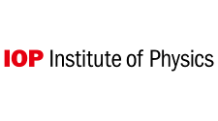 Upper Cut Productions.jpg)
PoLNET Workshop: Non-equilibrium Cold Plasmas in Biology and Medicine: The potential for basic science and technological applications in cancer and antibiotic resistant infection treatments.
This event has now finished.
Event details
Low-temperature (Cold) plasmas are a non-thermal, non-ablative technology. They are produced through electrically energising a gas, to generate a rich reactive chemistry e.g. reactive oxygen and nitrogen species (RONS), combined with charge, electric fields and photons. Low-temperature plasma generated reactive oxygen and nitrogen species are the same as those produced endogenously in the body and used to mediate many different processes and signaling mechanisms. Therefore, the plasma produced species can mimic their endogenous counterparts stimulating specific biological response pathways including for example cytotoxicity, immunogenicity and cell proliferation. Applications can be expected in the fields of cancer therapy, antimicrobials, wound healing, biotechnology, agriculture and food. The workshop will explore the fundamental underlying processes required to progress this technology, including innovative techniques and methods to investigate these. This requires expertise from multiple disciplines, including physics, biology, chemistry, medicine, engineering, industry and clinicians.
- Workshop overview
- View the agenda
- PoLNET dinner
- Travel to York
- Travel from York city to the University
- Venue information
- Accommodation
- Contact us
Who should attend
Workshop Organisers
Deborah O’Connell (University of York)
Paul Maguire (Ulster University)
Declan Diver (Glasgow University)
Invited Speakers
Brendan Gilmore, Queen’s University Belfast
Fiona Frame, University of Hull
Paula Bourke, Technological University Dublin
Rob Short, University of Lancaster
Cristina Canal, UPC Barcelona
Andrew Gibson, Ruhr University Bochum


